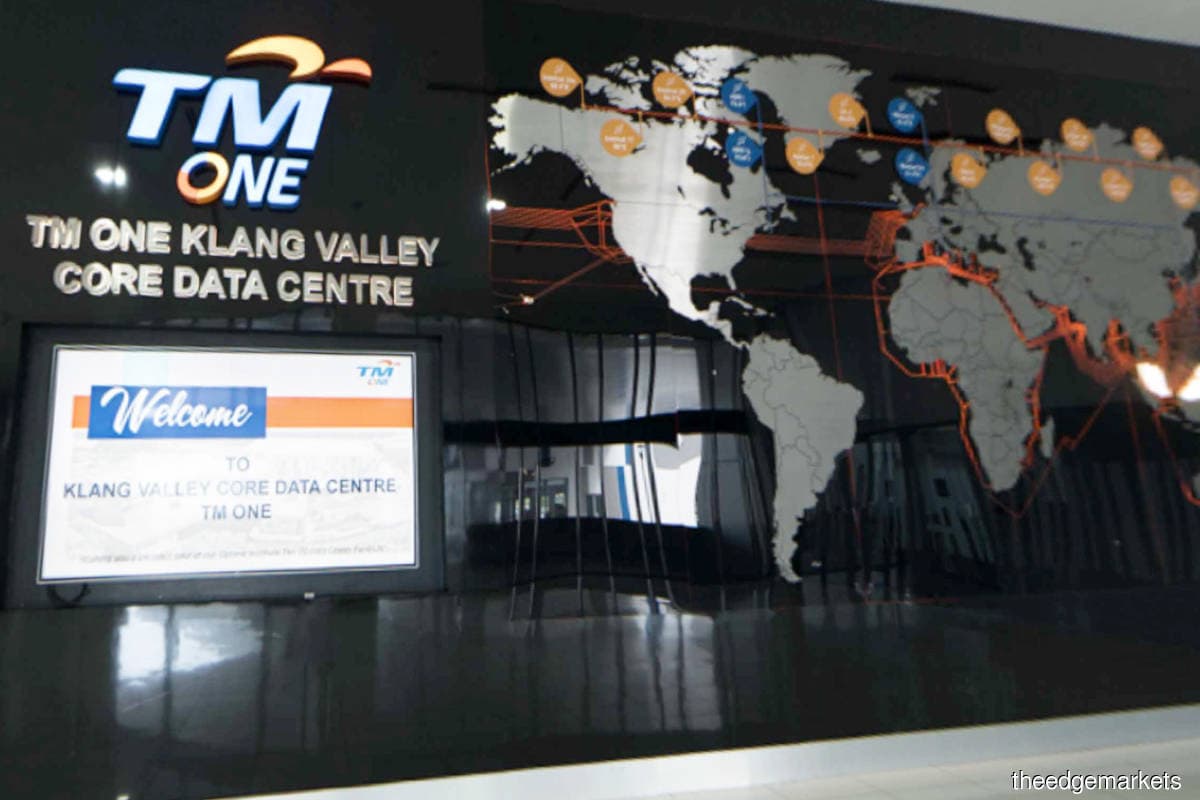
This article first appeared in The Edge Malaysia Weekly on April 5, 2021 - April 11, 2021
WHILE Telekom Malaysia Bhd’s appointment as a cloud service provider (CSP) was only announced recently under the MyDIGITAL initiative, the group says it already made the necessary investments towards this end several years ago as part of its three-year Digital Malaysia initiative.
CEO Imri Mokhtar tells The Edge that a digital nation has been a focus for TM since 2019, with the group making the necessary investments to develop its cloud computing capabilities. “For TM, the infrastructure is already available. We have been investing since 2017 and our data centres are already operational,” he says, adding that any further investment for this segment will be incremental.
The group currently has eight data centres, comprising four Tier II and another four Tier III data centres, including its two biggest facilities — the Iskandar Puteri Data Centre (IPDC) and the Klang Valley Data Centre (KVDC). The tier level of a data centre depends on several technical criteria, which include the level of security and available redundancies for power, says Imri.
He adds that the take-up at its data centres is rapidly building amid the push for digital among its private and public sector customers, which has been accelerated by the Covid-19 pandemic. The group is expecting even more take-up going forward, in view of the government’s goal of having 80% of the public sector’s data in the cloud.
While TM already has the infrastructure at the ready, the other three CSPs — Google, Amazon and Microsoft — will need to either build their own data centres in Malaysia or work with cloud players that are already present in the country by co-investing. Imri says TM will also be looking at collaboration with other data centres and cloud players going forward.
Asked whether TM will compete with the multinational players, he says there are areas in which it will compete against the others while working together on other aspects. In terms of the choice entity for the digitisation of the government’s data, however, he opines that the government is likely pick one of the CSPs.
In this sense, Imri could be hinting that TM may have an edge in terms of data sovereignty. “I think TM will have a different proposition than the other CSPs. We would be able to provide more data sovereignty and data residency because we are the only home-based CSP [among the four named],” he says.
On the other hand, the group is collaborating with the likes of hyperscalers to provide solutions to its end-customers. “In the digital ecosystem, competition is key. There are areas where we will be competing directly, such as for public sector works. But when it comes to the end-user, enterprises, we are partnering with cloud solution providers like Microsoft and AWS,” says Imri.
Cloud is only a piece of the puzzle
While TM’s cloud infrastructure is already in place, it is only a piece of the puzzle when it comes to the group’s plans under its three-year Digital Malaysia blueprint, says Imri.
Cloud technology and data centres will enable TM to move into the digital solutions space, which will require it to develop other data-centric capabilities such as artificial intelligence (AI), Internet of Things (IoT) and big data analytics.
The group has been hiring relevant talent and building its capacity in these areas, with plans to launch its TM Digital Academy in October. The academy will serve as an upskilling and reskilling centre for about 1,400 of its employees.
However, developing its internal talent alone is not enough as TM will need to collaborate with other players. “It’s all about collaborating. In fact, we are finalising a collaboration with a leading AI company, which we will announce soon. This will help us build our AI capacity, which will allow us to provide digital solutions,” says Imri.
One of the solutions that TM is looking to develop is for the healthcare sector. It is currently in talks with players such as IHH Healthcare Bhd and KPJ Healthcare Bhd.
This solution looks at connecting healthcare providers with their customers 365 days a year by leveraging wearable devices. These devices will collect data points, such as personal health and exercise information from the wearer, and store them in the cloud before analysing them using AI and big data analytics to provide insights into the wearer’s state of being.
“Cloud, IoT, big data — they are all pieces of the jigsaw puzzle towards the real solutions that we want to bring to healthcare, as well as other sectors such as retail and manufacturing,” says Imri.
Private sector players have been responsive to these types of solutions, he notes, adding that TM would love to have the same conversation with the public sector to explore these solutions.
Save by subscribing to us for your print and/or digital copy.
P/S: The Edge is also available on Apple's AppStore and Androids' Google Play.